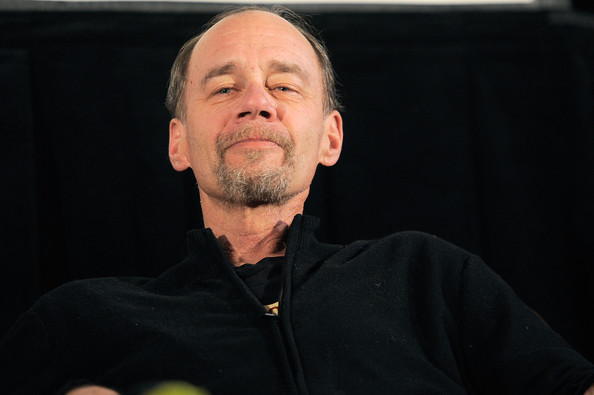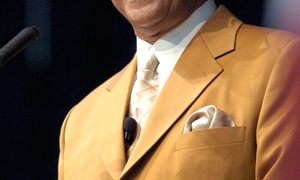David Carr, who wriggled away from the demon of drug addiction to become a journalistic celebrity, a name-brand media columnist at The New York Times and a best-selling author who reported on his own near demise and recovery, died on Thursday in Manhattan. He was 58.
Mr. Carr collapsed in the Times newsroom, where he was found shortly before 9 p.m. He was taken to St. Luke’s-Roosevelt Hospital, where he was pronounced dead. The cause had not been determined.
Mr. Carr also survived cancer and struggled with alcoholism, but none of that undercut his energy. He made frequent television appearances on talk shows and news programs, often spoke to journalism classes, and in 2011 was the leading figure in a documentary about The Times.
On the evening he died, he had moderated a panel discussion of “Citizenfour,” the Oscar-nominated documentary about Edward J. Snowden, the former National Security Agency contractor who leaked classified information indicating that the United States government was conducting global surveillance on a far larger scale than was publicly known.
The panel included Laura Poitras, the film’s director; Glenn Greenwald, the journalist who first published Mr. Snowden’s findings; and Mr. Snowden himself, speaking on a live video feed from Russia, where he has been living under asylum.
“There’s something about the way you made that movie and what it reveals that just makes it a little hard to sleep,” Mr. Carr told Ms. Poitras.
Covering pop culture earlier in his Times career, Mr. Carr was the first to write The Carpetbagger, a regular report on the news and nonsense from Hollywood’s red carpet awards season. He championed offbeat movies like “Juno,” with Ellen Page, and he interviewed stars both enduring and evanescent — Woody Harrelson, Neil Young, Michael Cera.
He became better known, perhaps, for his reporting and analysis of developments in publishing, television and social media, for which he was an early evangelist.
In his Monday column, The Media Equation, and in separate articles, he wrote about issues underscored by events (free speech and the Charlie Hebdo attacks); new devices both promising and confounding (the collapsible pole, sometimes called the “Narcissistick,” that helps cellphone users take selfies); personalities in the news (Julian Assange, the founder of WikiLeaks); perpetual big shots like Michael R. Bloomberg and Rupert Murdoch, and fleeting ones, like Randy Michaels, who was briefly the chief executive of the Tribune Company until a 2010 report by Mr. Carr exposed his coarse behavior and cronyism and he was forced to resign.
Mr. Carr’s writing was plain-spoken and could be blunt; he often gathered in readers conspiratorially and was sometimes self-referential and conscience-stricken. The effect was both folksy and sophisticated, a voice from a shrewd and well-informed skeptic.
“We want our anchors to be both good at reading the news and also pretending to be in the middle of it,” he wrote on Monday in the wake of revelations that the NBC anchor Brian Williams had lied about being in a helicopter under fire in Iraq in 2003.
“That’s why, when the forces of man or Mother Nature whip up chaos, both broadcast and cable news outlets are compelled to ship the whole heaving apparatus to far-flung parts of the globe, with an anchor as the flag bearer. We want our anchors to be everywhere, to be impossibly famous, globe-trotting, hilarious, down-to-earth and, above all, trustworthy. It’s a job description that no one can match.”
In a statement, Arthur Ochs Sulzberger Jr., the newspaper’s publisher and chairman, said that “David Carr was one of the most gifted journalists who has ever worked at The New York Times.” And in an email to staff members Thursday night, Dean Baquet, the executive editor, described Mr. Carr as “the finest media reporter of his generation, a remarkable and funny man who was one of the leaders of our newsroom.”
“He was our biggest champion,” Mr. Baquet added, “and his unending passion for journalism and for truth will be missed by his family at The Times, by his readers around the world and by people who love journalism.”
Mr. Carr’s ascent at The Times was all the more remarkable for the depths from which he rose.
As he wrote in his 2008 memoir, “The Night of the Gun,” by the late 1980s he was addicted to crack cocaine and living with a woman who was both a drug dealer and the mother of his twin daughters. One night, shortly after the girls were born, he left them in a car while he went into a house to score some coke from a dealer named Kenny.
“Kenny’s lip-licking coke rap was more ornate, somehow more satisfying, than that of most of the dealers I worked with,” Mr. Carr wrote. “His worldview was all black helicopters and white noise — the whispering, unseen others who would one day come for us. It kept me on my toes.
But tonight I had company. I certainly couldn’t bring the twins in. Even in the gang I ran with, coming through the doors of the dope house swinging two occupied baby buckets was not done. Sitting there in the gloom of the front seat, the car making settling noises against the chill, I decided that my teeny twin girls would be safe, that God would look after them while I did not.”
A few months later, Mr. Carr was in a treatment program, and by 2008 he could look back and write, “Today I am a genuine, often pleasant person, I do solid work for a reputable organization and have, over the breadth of time, proved to be an attentive father and husband.”
Mr. Carr, who joined The Times in 2002 as a business reporter covering magazine publishing, cut a distinctive figure in the newsroom, with a wizened mien, a throaty croak of a speaking voice and a storklike posture. He could be curmudgeonly, and his intellectual cockiness and unwillingness to suffer fools found their way into his conversation as well as his prose.
He became the embodiment of The Times as the surprise scene stealer of a 2011 documentary about the paper, “Page One: Inside The New York Times,” in which Mr. Carr is seen not only reporting stories but also defending the honor of the paper against offhand insults.
“The moviemakers must have felt that they had found their Jimmy Breslin or their Hildy Johnson (the real and fictional archetypes of the crusty, hard-living journalist) when they found him,” Michael Kinsley wrote in reviewing the film, not terribly favorably, for The Times. “Mr. Carr is widely admired for his reporting, his intelligence and his Tough Old Coot routine.”
David Michael Carr was born on Sept. 8, 1956, in Minneapolis, and grew up just outside the city in Hopkins, Minn. His father, John, a haberdasher, had his own struggles with alcoholism and was an advocate of recovery programs; David’s mother, Joan, was a schoolteacher.
He graduated from the University of Minnesota, where he majored in psychology and journalism. He worked for an alternative weekly, Twin Cities Reader, and later Washington City Paper before moving to New York. He wrote about media for a website, Inside.com, and before joining The Times was a contributing writer to The Atlantic Monthly and New York magazine.
Mr. Carr lived in Montclair, N.J. His survivors include his wife, Jill Rooney Carr, international operations manager for Shake Shack; his daughters, Maddie, Erin and Meagan; and five siblings, Jim, John Jr., Joe, Missy and Lisa.
“I now inhabit a life I don’t deserve,” Mr. Carr wrote at the conclusion of “The Night of the Gun,” “but we all walk this earth feeling we are frauds. The trick is to be grateful and hope the caper doesn’t end any time soon.”
Source: Chicago, IL




















































































































































































































































![[Video] Chicago Police Officers Caught On Video Telling Two Black Men "We Kill Mother F**kers"](https://earhustle411.com/wp-content/uploads/2018/07/evil-cop-3-300x180.jpg)
![[Video] Chicago Police Officers Caught On Video Telling Two Black Men "We Kill Mother F**kers"](https://earhustle411.com/wp-content/uploads/2018/07/evil-cop-3-80x80.jpg)












![[Video] White Woman Calls The Cops On Black Real Estate Investor, Cops Threaten To Arrest Her For Harassing Him](https://earhustle411.com/wp-content/uploads/2018/05/nosy-neighbor-300x180.png)
![[Video] White Woman Calls The Cops On Black Real Estate Investor, Cops Threaten To Arrest Her For Harassing Him](https://earhustle411.com/wp-content/uploads/2018/05/nosy-neighbor-80x80.png)


![White Scientist Says The Black Community Is Being Targeted By The Medical System, They Are Deliberatly Being Poisoned [Video]](https://earhustle411.com/wp-content/uploads/2016/05/mike-adams-300x180.jpg)
![White Scientist Says The Black Community Is Being Targeted By The Medical System, They Are Deliberatly Being Poisoned [Video]](https://earhustle411.com/wp-content/uploads/2016/05/mike-adams-80x80.jpg)








![Teenage Girl Shot In Her Stomach Three Times But Took Time To Post To Facebook [ Video]](https://earhustle411.com/wp-content/uploads/2016/02/Gangster-chick-300x180.jpg)
![Teenage Girl Shot In Her Stomach Three Times But Took Time To Post To Facebook [ Video]](https://earhustle411.com/wp-content/uploads/2016/02/Gangster-chick-80x80.jpg)







